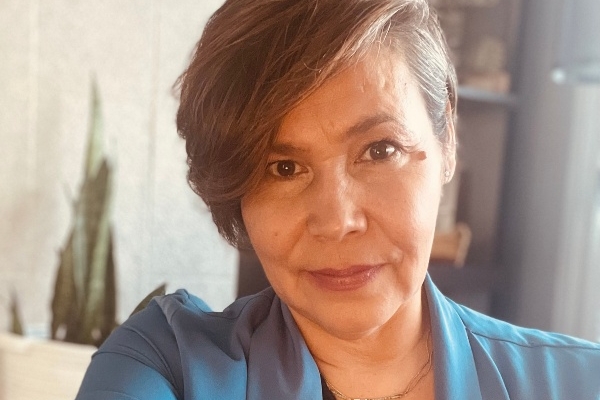
Revolutionizing learning with traditional methods
A two-person dissertation focusing on traditional cultural knowledge gives Jocelyne Wasacase-Merasty unique insights.
By Matt Olson for JSGSJocelyne Wasacase-Merasty had no shortage of real-life experience in her field — but that didn’t mean she wasn’t interested in adding to her toolkit.
It’s one of the reasons she pursued a graduate degree from the Johnson Shoyama Graduate School of Public Policy (JSGS) back in 2014, and it’s the reason she’s pursuing a truly unique thesis on her way to earning her PhD now.
Wasacase-Merasty earned her bachelor’s degree in communications before getting her Master’s degree through the now-defunct Master of Northern Governance and Development program at JSGS.
Throughout her time earning her first degrees, Wasacase-Merasty was still out in Indigenous communities working in the exact areas she was studying.
“One of the areas I’ve built up a lot of experience and expertise now is in the area of Indigenous governance,” she said. “So I’d go into communities and facilitate workshops not just about governance as a topic, but also helping them work through a number of community issues.”
Her PhD thesis continues to build on those ideas of policy and governance, but with a twist: Wasacase-Merasty is working on this thesis project jointly with another student.
Wasacase-Merasty and Jaqueline Woods were talking about sharing research for their respective projects but soon came to the idea of taking on one project as a team.
“We thought, if we’re talking about reconciliation and the importance of blending two world views, then let’s make a proposal to our committees to accept our joint PhD,” Wasacase-Merasty said.
She and Woods were connected by similar interests and experiences, and their initial plan was to focus their thesis on the idea of nation-building in First Nations communities by combining Woods’ more economic development perspective with Wasacase-Merasty’s more community-based experience.
Wasacase-Merasty credited their supervisor, Professor Ken Coates for simplifying the scope and the process for their project. The pair of PhD students narrowed the focus of their research to the role of women in the nation-building process — something they both had first-hand experience with — and jumped back into their work.
The researchers created surveys to connect with women in First Nations in Saskatchewan and, with a tighter focus on letting the voices of women in the community be heard, Wasacase-Merasty said the project became much clearer for her and tied back to her own work experiences.
“I have my own observations I’ve made over the years about the important role of women,” she said. “When you read the literature out there … they often overlook or miss the important women are doing in their homelands. They were looking after the home, their families and building up their community.”
“If women were involved and women were strong in the community, it showed.”
Wasacase-Merasty said JSGS supported her, and Woods’ unique joint PhD program showed that the universities involved are trying to be more of an ally to Indigenous researchers and perspectives.
She noted that if universities can be willing to support new ideas of sharing and presenting knowledge, there’s potential for the introduction of “new knowledge” as different perspectives and worldviews can work more in tandem.
“Expressing Indigenous people ideas, their ways of knowing, ways of being, ways of transmitting their knowledge, and there is a place for it in academia — I think to embrace and support this type of Indigenous contributions, is important for reconciliation,” Wasacase-Merasty said.
Wasacase-Merasty said a lot of the theory base for public policy that is taught at schools like JSGS tends to be from European, non-Indigenous perspectives. So, if the next step is bringing in Indigenous voices, you have to be willing to bring in something new.
“Allowing space for the undertaking of reconciliation research is an act of innovative thinking. Even though the outcomes may be unknown, but if it’s approached with purpose, an eagerness to learn, and the ability to adapt along the way the results will be meaningful, in both the research and the experience.”
As Wasacase-Merasty’s research has delved into the role of women in the community, she said she’s more and more “convinced” by what she’s been learning about women’s role in nationhood.
She said there are more topics emerging from her survey that have led to more questions regarding the marginalization of Indigenous women, and the concept of matriarchs as a leadership style — a newer topic Wasacase-Merasty has been focusing her writing on in the PhD research.
Through everything she’s learned, Wasacase-Merasty said that while capturing these thoughts and voices in writing is important, she’s driven by what impact her work will end up having in the community.
“My passion has always been about communities. I love being a facilitator, I love being in the community, I love sharing knowledge, but also helping First Nations communities deal with governance and nation-building issues,” she said. “Whatever happens in my life, that’s always who I am and the work that I pursue.”

